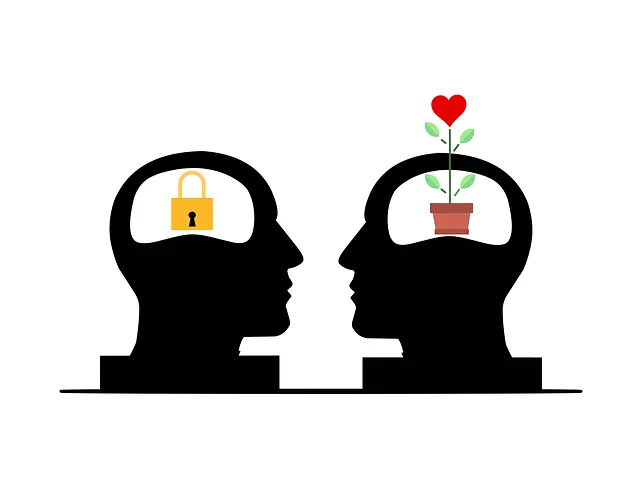Mental wellness apps are transforming mental healthcare in remote areas by offering personalized, evidence-based guidance and support. Incorporating features like Crisis Intervention, CBT, mindfulness, and community forums, these apps empower users to manage their mental health effectively, regardless of location or resources. Integrated with healthcare systems like Kaiser in Lone Tree, these apps provide comprehensive services tailored to individual needs, enhancing overall well-being through resilience-building strategies. Marketing success involves genuine connections, trust-building, and highlighting unique value propositions, such as addressing specific concerns like depression prevention.
In today’s digital age, mental wellness apps are becoming essential tools in managing stress and anxiety. With a growing demand for accessible therapy options, understanding the need for these apps is more crucial than ever. This article explores various aspects of mental wellness app development, including key features, healthcare integration, and marketing strategies. We delve into how platforms like Lone Tree can enhance mental health support, especially in light of Kaiser’s comprehensive mental health coverage.
- Understanding the Need for Mental Wellness Apps
- Features and Components of Effective Therapy Apps
- Kaiser's Approach to Mental Health Coverage
- Integrating App Development with Healthcare Systems
- Marketing and User Engagement Strategies for Success
Understanding the Need for Mental Wellness Apps

In today’s fast-paced world, mental wellness is just as crucial as physical health, yet many individuals struggle to access adequate support. This is where mental wellness apps step in as a game-changer. With the rise of digital technology, apps offer accessible and convenient solutions for managing mental health, especially for those in remote areas or facing barriers to traditional therapy. For instance, consider someone living in a lone tree, miles away from urban centers; they may wonder, “Does Kaiser cover mental health therapy here?” Apps provide an answer by offering Crisis Intervention Guidance tailored to their location, ensuring no one feels isolated in their quest for mental well-being.
These digital tools not only cater to basic needs but also delve deeper into various aspects of mental wellness. They incorporate Social Skills Training to help users navigate social interactions with confidence and Mind Over Matter Principles to empower individuals to take control of their thoughts and emotions. By combining accessibility, personalized guidance, and evidence-based practices, mental wellness apps are revolutionizing the way we approach and support mental health, ensuring that everyone, regardless of their location or resources, has access to the tools they need to thrive.
Features and Components of Effective Therapy Apps

Effective therapy apps for mental wellness should be designed with a comprehensive set of features and components to ensure user engagement and positive outcomes. Firstly, they must offer personalized treatment plans tailored to individual needs, allowing users to track their progress over time. This can include mood monitoring, symptom tracking, and goal-setting tools. Secondly, integration of various therapeutic techniques such as cognitive-behavioural therapy (CBT), mindfulness exercises, and relaxation strategies is crucial.
Moreover, community outreach program implementation within these apps can foster a sense of belonging and support. Features like forums, chat groups, or virtual meetups enable users to connect with peers facing similar challenges. Risk assessment tools for mental health professionals can also be incorporated to detect early signs of distress or self-harm, prompting timely interventions. Additionally, focusing on inner strength development through positive affirmations, motivational messages, and achievable tasks helps users build resilience and cope more effectively.
Kaiser's Approach to Mental Health Coverage

Kaiser, a prominent healthcare provider, takes a comprehensive approach to mental health coverage, addressing a wide range of emotional well-being promotion techniques. Their services encompass various mental wellness journaling exercise guidances and therapeutic interventions designed to prevent and manage conditions like depression. Lone Tree residents can benefit from these resources, ensuring accessible support for their mental health needs.
By integrating evidence-based practices, Kaiser aims to enhance overall well-being. This includes not only treating existing mental health disorders but also promoting resilience and coping strategies to maintain good mental health. Their coverage encourages individuals to actively engage in self-care, making it a valuable asset for those seeking to improve their emotional well-being.
Integrating App Development with Healthcare Systems

The integration of app development with healthcare systems is a significant step towards enhancing mental wellness. In today’s digital age, many insurance providers like Kaiser are expanding coverage to include mental health therapy services, making it easier for individuals to access support through innovative solutions. Lone Tree, for instance, offers mental health apps that cater to diverse needs, from emotional intelligence development to conflict resolution techniques, ensuring users receive comprehensive care.
These apps can seamlessly integrate with existing healthcare platforms, allowing for easy tracking of progress, personalized recommendations, and continuous engagement in mental health education programs. By leveraging technology, individuals can now access therapeutic tools and resources conveniently, promoting proactive management of their well-being. This shift towards digital mental health solutions not only expands accessibility but also contributes to the overall efficiency and effectiveness of healthcare systems.
Marketing and User Engagement Strategies for Success

Marketing and user engagement are pivotal to the success of any mental wellness app, especially one aiming to stand out in a competitive market. Strategies should focus on creating an authentic connection with potential users, fostering trust, and highlighting unique value propositions. Leveraging social media platforms for Public Awareness Campaigns Development can help normalize conversations around mental health, attracting users seeking support. Collaborating with influencers or sharing user success stories can humanize the app and encourage downloads.
Additionally, integrating evidence-based practices like Mind Over Matter Principles in content and features can set the app apart. For instance, promoting mindfulness exercises, cognitive behavioral therapy techniques, or positive affirmations can appeal to users looking for proactive mental wellness solutions. Tailoring marketing efforts to address specific concerns, such as Depression Prevention, by offering targeted resources and support groups can further engage users and ensure the app meets their needs effectively.
Mental wellness apps have emerged as a game-changer in accessing therapeutic support, especially with Kaiser’s comprehensive mental health coverage. By integrating app development with healthcare systems, we can create effective tools that cater to individual needs. Features such as personalized plans, mood tracking, and virtual therapy sessions are essential components for success. Marketing strategies should focus on raising awareness about the availability of these apps, ensuring folks in need know where to find support. Lone Tree’s Kaiser network plays a vital role in covering mental health therapy, making professional care more accessible than ever before.






